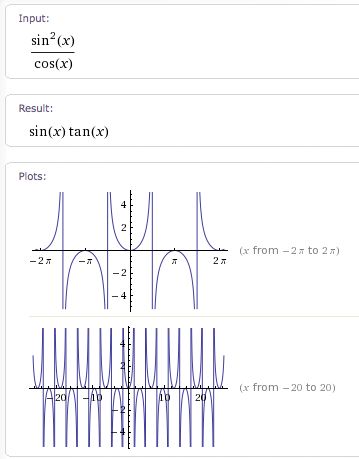Wolfram Alpha: Wikipedia killer?

It seems that most people who have had the chance to use Wolfram Alpha (myself included) agree that it will do a few things to Google: it will drive it to innovate in semantic search and it will complement its high-volume search capabilities quite nicely. It will not, however, kill Google.
On the other hand, the folks over at Trusted Reviews made a very good point in their first look at Alpha:
...Wolfram Alpha isn't verbose, it likes stats not sentences so we are looking at something to complement existing web search engines, not replace them.
That said, there remains no doubt Wolfram Alpha represents a quantum leap forward in compiling data and the next time I need cold hard facts I suspect it is Wikipedia, not Google, which might feel the pinch...
Hmmmm...A Wikipedia killer in the making? Wikipedia is certainly one of my goto sites for quick answers to factual questions. While I could debate the veracity of Wikipedia's entries with the average librarian ad nauseum, it remains a solid resource for high-level, factual information, just as most dead-tree encyclopedias would.
Wolfram Alpha, however, brings with it a brand that is to academia what Honda is to cars. Reliable, progressive, smart, and respected. I was using Mathematica in the 10th grade and it remains a powerful tool. A few minutes with Alpha suggests that it just might be a similarly powerful tool. So powerful, in fact, that said librarians may have a much harder time debating its reliability.
Alpha just might be something that librarians embrace and add to their repertoire of research tools. No more searching through ad-supported hits on Google to simply remember those facts that we no longer need to commit to memory or find answers to more sophisticated questions; a few minutes using Alpha will convince the most reluctant of educators.
So far, here's my favorite result. A search on the formula (sin^2(x))/cos(x) yields the following:

I could probably build at least a quarter-long class on research strategies using Alpha vs. Google. A simple search for the world "veracity" yields the definition, word origin, pronunciation, hyphenation, and a synonym. A Google search for the same word gives me my choices of online dictionaries.
A search for "characters on lost" returns, "Wolfram|Alpha isn't sure what to do with your input." Google gave me everything I needed to know about the show. When it comes down to use in the classroom, though, Alpha is going to be my first choice for search and the first choice I advocate for teachers. It remains to be seen how far its limitations reach, but certainly in terms of math and science, the potential of Alpha is nearly unlimited; how will Google deal with this among academics?